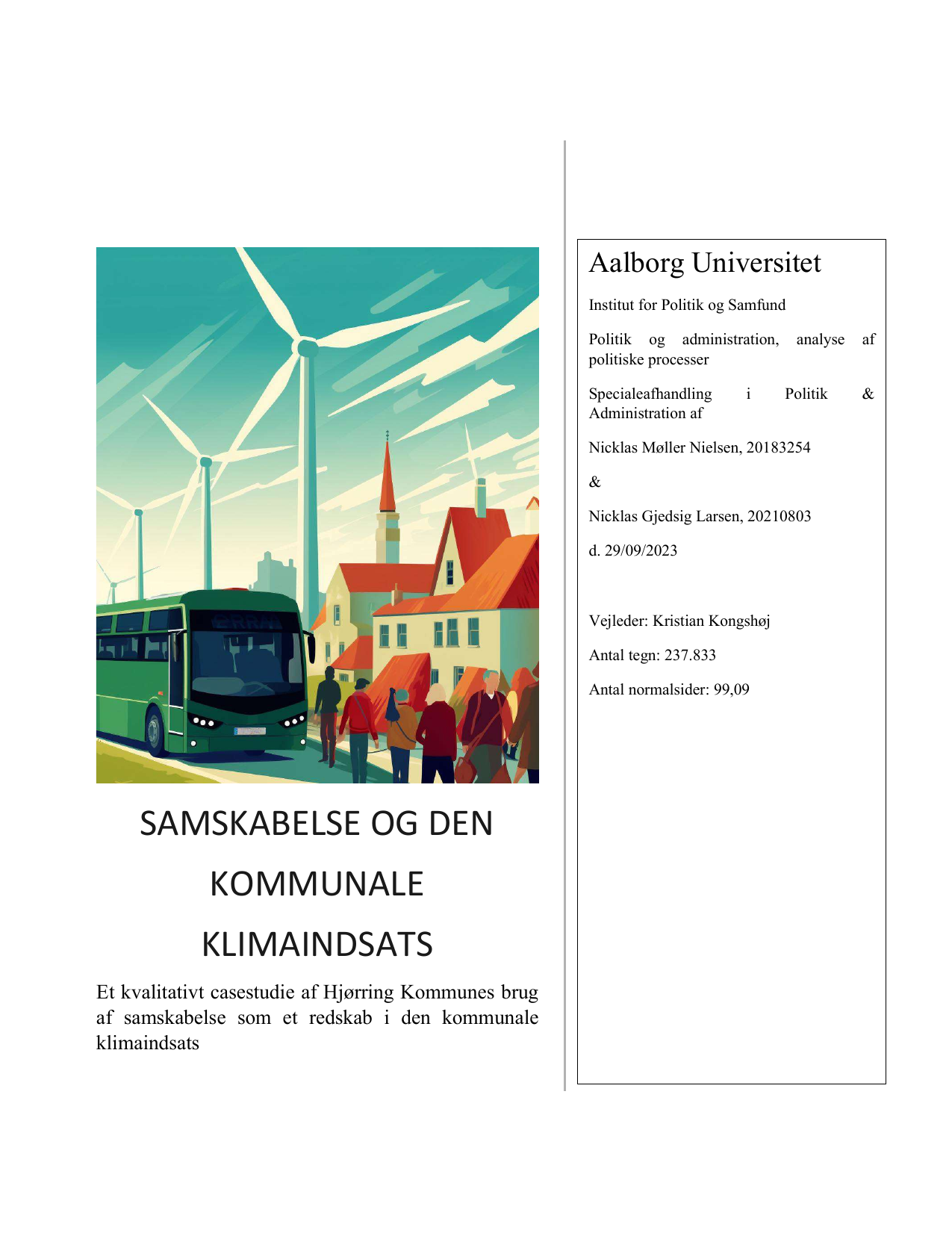
Samskabelse og den kommunale klimaindsats: Et kvalitativt casestudie af Hjørring Kommunes brug af samskabelse som et redskab i den kommunale klimaindsats
Oversat titel
Co-creation and municipal climate policy: A qualitative case study on the use of co-creation by Hjørring Municipality in their climate action initiatives.
Forfattere
Semester
4. semester
Uddannelse
Udgivelsesår
2023
Afleveret
2023-09-30
Antal sider
9909
Abstract
In this paper, we investigate the role and purpose of co-creation as a tool and an approach used by municipal governments within the context of urban climate governance and the characteristics of different types of co-creation. We use the case of Hjørring municipality in Denmark as an example, characterized by its status as a rural municipality, as opposed to Scandinavian metropolises or municipalities located within a larger metropolitan area, as studies on this type of municipality are severely lacking in the literature. To do so, we apply a theoretical conceptual framework consisting of 5 ideal co-creation strategies developed by Hofstad et al. (2022) and further refined by Vedeld (2022). This framework covers the diverse settings and actors with which a municipality might engage in co-creation. Alongside, we utilize a typology of co-creation, consisting of four types based on the characteristics of the co-creation process, developed by Ulrich (2016). We then apply these theoretical aspects to 8 embedded cases identified within the climate policy of Hjørring Municipality. Empirically, our primary data come from 7 semi-structured interviews conducted with relevant municipal employees and local politicians with connection to the relevant executive committee. These are complemented by supplementary policyrelated documents related to the embedded cases. Our analysis begins with individual analysis of the 8 embedded cases, some of which contain include aspects of different co-creation strategies and types. Subsequently, we present a synthesized analysis, drawing from the individual analysis of the 8 embedded cases to describe the characteristics of the 5 co-creation strategies, their purpose, and which types of co-creation these draw upon. Our findings reveal that the 5 co-creation strategies have varying roles within the climate policy of Hjørring, with some overlaps. Participation in regional municipal networks, for instance, is crucial for exchanging expertise and knowledge among municipal employees and politicians, while also serving as a platform for policy negotiation. Citizen involvement appears to try to secure democratic legitimacy to the climate policies, but citizens also play a role in co-implementing measures related to the policy concerned with reducing consumption-based emissions. The private sector emerges as an essential source of information about local conditions. Conversely, the municipality seeks to foster partnerships and innovation across sectors. Within the municipal organization, co-creation plays a role in promoting climate concerns across different sectors and fields. Overall, we ascertain that the success of diverse co-creation initiatives hinges on factors like political willingness, leadership, past experiences, and resources to establish conditions conducive to co-creating green initiatives.
Emneord
